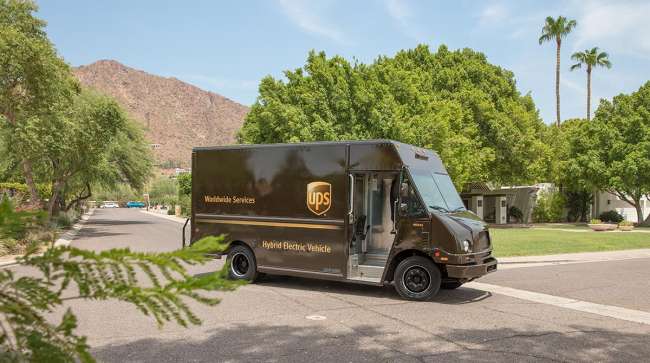Staff Reporters
UPS-Teamsters Talks Break Down

[Stay on top of transportation news: Get TTNews in your inbox.]
Face-to-face negotiations on a new labor deal between UPS Inc. and the International Brotherhood of Teamsters stalled July 5 after showing promise over the weekend, renewing concern that workers represented by the union could strike at the end of the month if a final agreement is not reached.
“We have nearly a month left to negotiate. We have not walked away, and the union has a responsibility to remain at the table,” Atlanta-based UPS said in a July 5 statement. “Refusing to negotiate, especially when the finish line is in sight, creates significant unease among employees and customers and threatens to disrupt the U.S. economy. Only our nonunion competitors benefit from the Teamsters’ actions. We’re proud of our offer. It delivers wins for our people. The Teamsters should return to the table to finalize this deal.”
The union issued a 4 a.m. tweet on July 5 charging that it was the parcel carrier that had left the negotiating table. “UPS had a choice to make, and they have clearly chosen to go down the wrong road,” Teamsters General President Sean O’Brien said in a statement.
The breakdown arrived just days after a July 1 Teamsters tweet indicated that a tentative agreement was in place on three economic issues involving wages for a specific tier of drivers, overtime work on scheduled days off, and recognition of Martin Luther King Jr. Day as a full company holiday.
UPS TEAMSTERS REDOUBLE STRIKE READINESS AROUND THE COUNTRY
With @UPS walking away from the national table early this morning, #Teamsters’ practice picketing actions are escalating at UPS barns nationwide. #1u pic.twitter.com/Q8UO0tGYFZ — Teamsters (@Teamsters) July 5, 2023
The July 5 breakdown indicates that pay is the main sticking point stalling progress. UPS’ 22.4 job classification — introduced in 2018 as part of the current contract — is a tier of drivers who earn a lower hourly wage and receive fewer benefits than full-time drivers. The union has vowed since the system was implemented to remove it in the next contract cycle.
The current contract expires July 31, and the union has said it will not work under an extension. O’Brien had been pushing to have a full tentative agreement in place by July 5 so he could present it to the rank-and-file members and seek approval from union leadership council and the membership. That process usually takes several weeks. Last month, union members voted in favor of calling a strike if no agreement is reached. The union says it has banked more than $300 million in a strike fund.
Want more news? Listen to today's daily briefing above or go here for more info
The Teamsters union represents more than 340,000 drivers and loaders, and the company processes 25 million packages a day, totaling 6% of the nation’s gross domestic product. Union officials have long stressed that UPS saw its revenue and income soar during the pandemic, as freight volume surged amid consumer and business shifts to more home and office delivery of items, including larger parcels. The union has said it expects its members to be rewarded for their hard work during the pandemic.
UPS has described its most recent offer as “historic” and maintains that it is offering workers a deal that “builds on our industry-leading pay.”
Neither side can afford a strike, said Bruce Chan, director of global logistics and future mobility for investment firm Stifel. He noted that the last UPS strike, which took place in 1997, lasted for 16 days and cost the company market share in the parcel sector.
UPS ranks No. 1 on the Transport Topics Top 100 list of the largest for-hire carriers in North America.




